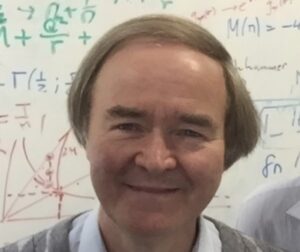Your cart is currently empty!

The Multiverse and the Limits of Science
- This event has passed.
October 2, 2021 @ 6:00 pm – 8:00 pm CEST

Watch the recording
The Multiverse and the Limits of Science
with Bernard Carr
Saturday October 2, 2021
9:00 PDT | 12:00 EDT | 17:00 BST | 18:00 CEST
2-hour session
If you are unable to attend the live session, the recording will be available.
Developments in both cosmology and particle physics suggest that our universe may just be one member of an ensemble of universes, termed the multiverse. However, there are many different versions of the multiverse proposal, so it is important to distinguish between these in assessing the plausibility of the notion. In some versions the values of the physical constants may vary across the ensemble, so this could provide a scientific basis for the suggestion that some of the constants are fine-tuned for the existence of observers. The evidence for this comes from numerous unexplained ‘coincidences’ between the constants, a notion which used to regarded as purely philosophical or even theological. But what is the universe fine-tuned for? Is it for complexity or some physical feature (such as the existence of black holes) or is for life or consciousness. And is the multiverse a proper scientific proposal or just philosophical speculation? This depends on the definition of ‘science’ but it is argued that the nature of science has continually changed as our knowledge of the universe has expanded.
To see the Full Multiple Universes Program

Bernard Carr is Emeritus Professor of Mathematics and Astronomy at Queen Mary University of London. His professional area of research is cosmology and astrophysics and includes such topics as the early universe, dark matter, black holes and the anthropic principle. For his PhD he studied the first second of the Universe, working under the supervision of Stephen Hawking at the Institute of Astronomy in Cambridge and the California Institute of Technology.He was elected to a Fellowship at Trinity College, Cambridge, in 1975 and moved to Queen Mary College in 1985. He has also held Visiting Professorships at Kyoto University, Tokyo University, the Fermi National Accelerator Laboratory and the Canadian Institute for Theoretical Astrophysics. He is the author of nearly three hundred scientific papers and the books Universe or Multiverse? and Quantum Black Holes. Beyond his professional field, he is interested in the role of consciousness in physics and in an expanded paradigm which accommodates mind. He also has a long-standing interest in the relationship between science and religion. He was President of the Society for Psychical Research in 2000-2004 and is currently President of the Scientific and Medical Network.
